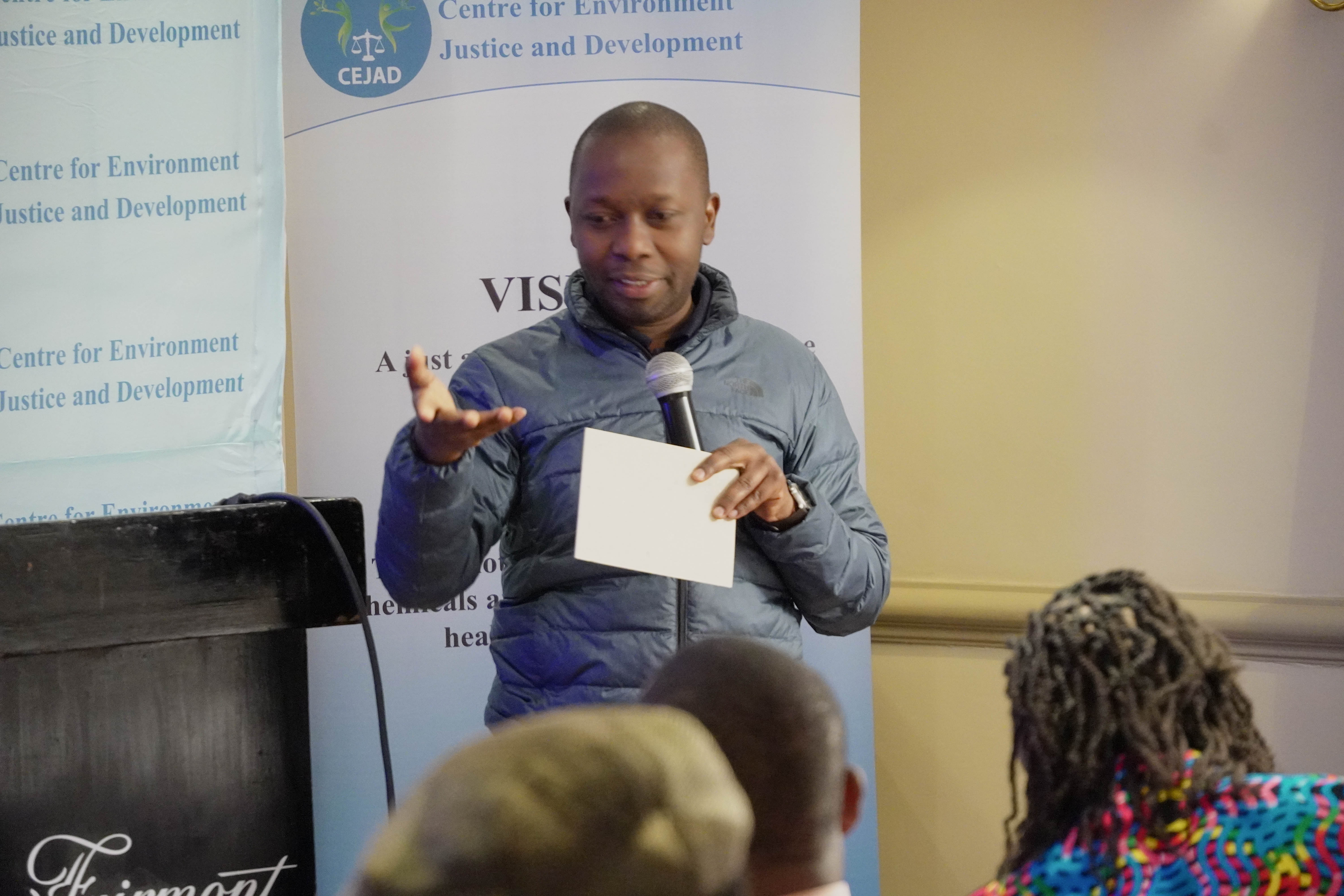 Griffins Ochieng, executive director of the Centre for Environmental Justice and Development (CEJAD).
Griffins Ochieng, executive director of the Centre for Environmental Justice and Development (CEJAD).
African governments have been asked to boldly demand and push for an ambitious,
legally binding treaty to protect human health and the environment from
plastic pollution.
The Kenyan Civil Society Coalition to End Plastic Pollution made this call during a meeting organised in Nairobi by Centre for Environmental
Justice and Development (CEJAD) in partnership with Heinrich Boll Foundation
(HBF) ahead of the coming fifth resumed session of the Intergovernmental
Negotiating Committee (INC-5.2) on the Global Plastics Treaty in Geneva from
August 5 to 14.
The meeting in Geneva is proposed to finalise the treaty by addressing
various aspects of plastic pollution across its lifecycle, including
production, chemicals of concern, design, trade, waste management and a just
transition.
Griffins Ochieng, Executive
Director of Cejad, said: “This is an opportunity for Africa to assert its
position, protect its people, and shape an ambitious, legally binding treaty
that delivers real, systemic change. Let this treaty reflect the lived
realities of our people, not the boardroom interests of petrochemical companies
as witnessed over the past negotiations.”
The CSOs noted that developing countries in Africa suffer health and environmental impacts of toxic chemicals and wastes more than developed countries.
This is in part the result of loopholes in international
legislation and abuses by large corporations and countries that export waste
containing dangerous chemicals.
“African nations must realise what is at stake for them in
these negotiations. Africa must not become the dumping ground for the Global
North’s plastic waste or be forced to adopt polluting technologies like
incineration and waste-to-energy schemes under the guise of solutions,” said Hellen
Dena, Pan-African Plastic project lead at Greenpeace Africa.
Shalon Muiruri, executive director of Safe Dada Kenya, said plastic pollution also compounds existing gender inequalities, especially for women and girls in rural and Indigenous communities.
"From unsafe menstrual hygiene products to toxic waste infiltrating food and water systems, plastics pose a real threat to bodily autonomy, health, and livelihoods. Solutions must be rooted in justice. We need a treaty that prioritises women-led innovation, indigenous knowledge, and grassroots action, not one dictated by the profit motives of polluting industries,” she said.
Waste pickers also demanded a just transition that recognises their rights, roles, and realities.
“We don’t want to be included as an afterthought. We want policies that start with us; with our knowledge, labour and struggles in mind. A Just Transition means shifting power, from boardrooms to the communities on the ground. It means building a future where waste pickers are protected, respected, and paid fairly for the essential work we do,” said Gisore Nyabuti, chairperson of the waste pickers association.











